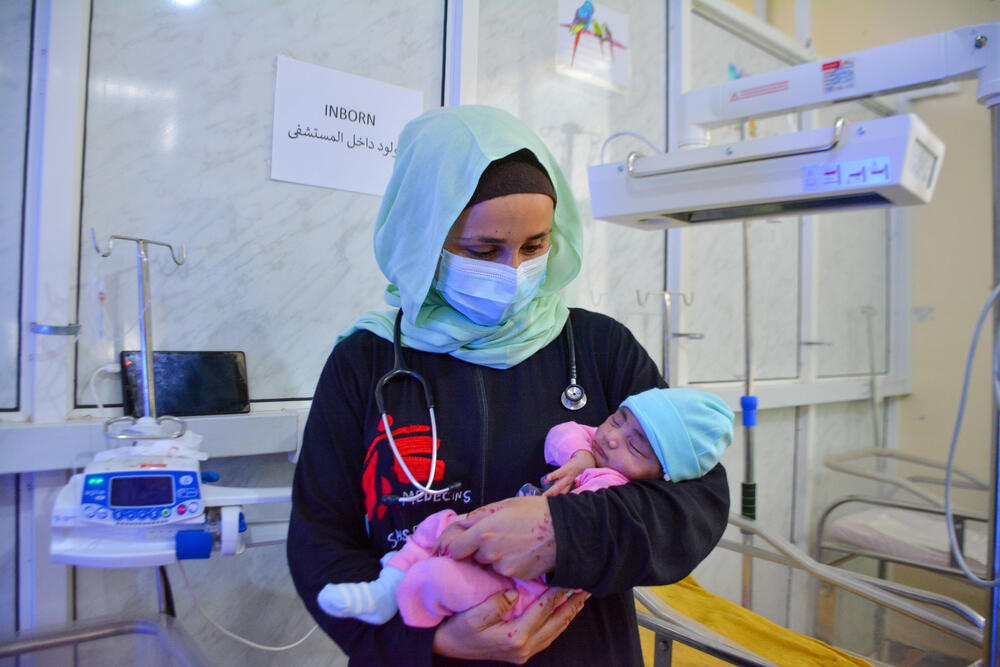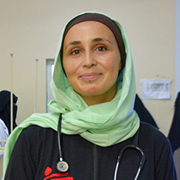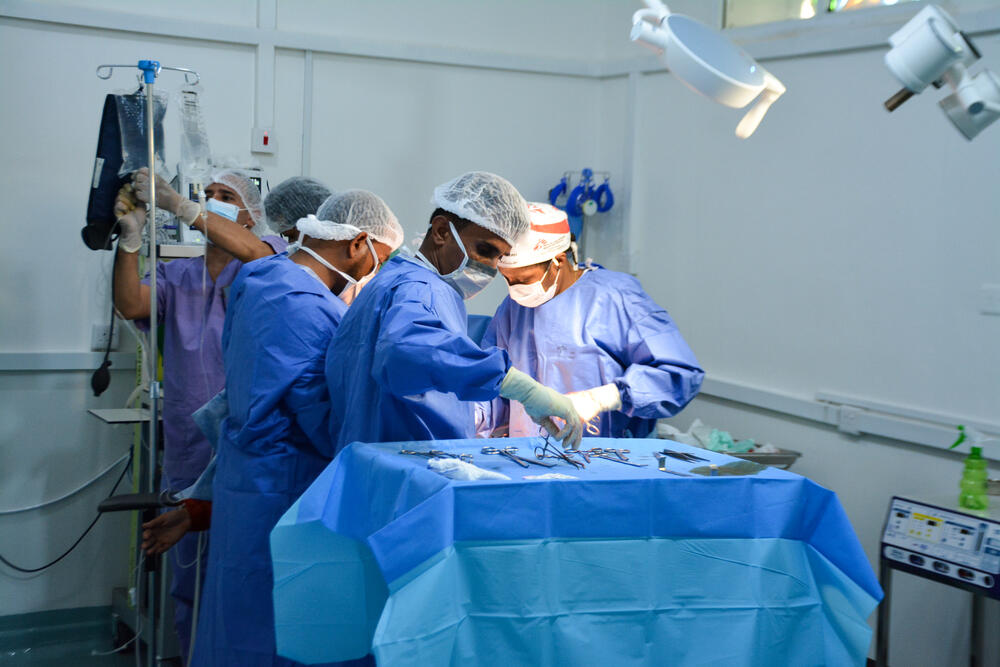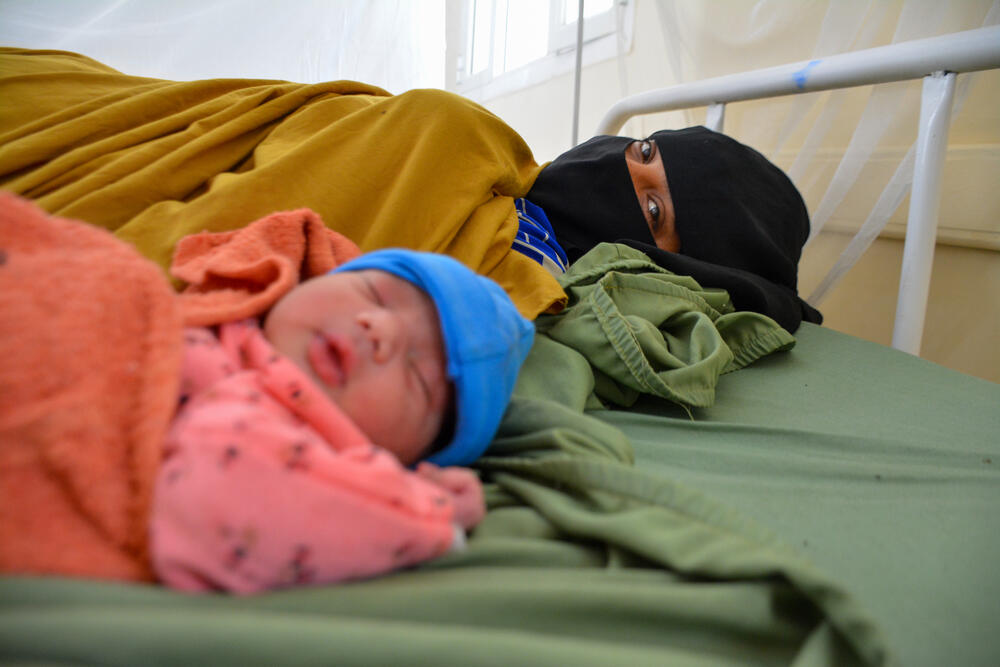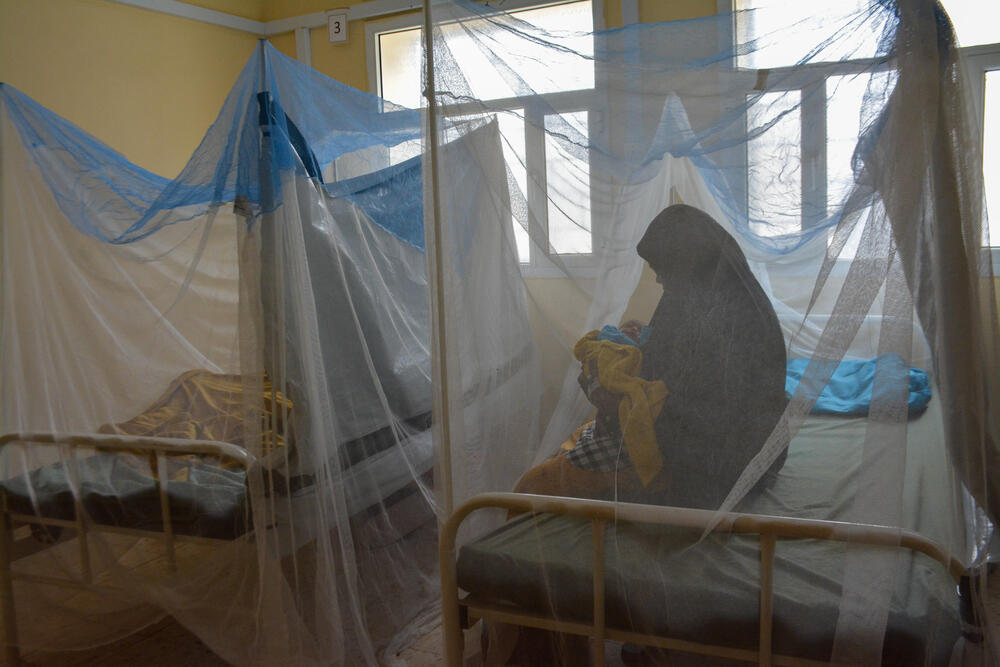Yemen: “It’s not always a bullet that kills people”
Paediatrician Mónica Costeira is in Al-Qanawis, Yemen, where MSF runs a vital mother and child hospital treating patients otherwise cut off from care by the brutal civil war.
On the rooftop of the Médecins Sans Frontières / Doctors Without Borders (MSF) house in the city of Al-Qanawis, in the Hodeidah region of northwest Yemen, I look at the stars.
We all look up at the same sky, I think, but life is so different depending on your vantage point. Here, I am in a beautiful country with a very rich history. Now, it is being destroyed by war.
You might think that injuries in war are about trauma: people are victims of bombs, gunshots or shelling. What many people don’t realise is that war also brings endless invisible misery, as well as physical harm.
“In Yemen, something as simple as going to the hospital when you are sick can be an odyssey”
Al-Qanawis and the surrounding region is an example of this.
Every week, we admit dozens of newborn babies to the mother and child hospital supported by MSF in Al-Qanawis. Fighting for their lives, these children are victims of what this war has done to their country.
Buckled under the weight of war
The Hodeidah region has been one of the most active conflict zones in Yemen in the six years since the war began. However, many of our patients come from remote villages located in desert-like regions, not from the frontline.
They do not normally hear the sound of gunshots, airstrikes or shelling, but even so they feel they are at war every day.
As I speak to our patients, I come to understand that they lack access to healthcare, food, water, safe shelter and education.
Many people die due to diseases that are perfectly treatable and preventable if only they had access to a hospital with the necessary staff and medication.
As a result, the most severely affected people are the most vulnerable; children, pregnant women, elderly people, and people with chronic diseases.
The first thing that a war does to a country is to burden its healthcare system. A country like Yemen, with a health infrastructure that was already weak, has buckled under this extra weight.

Help us prepare for the next emergency
Hope for little Latifa
Wherever people live, they try to achieve the best life for their families. People don’t give up.
In Yemen, you find parents selling everything they have for a chance to send some of their children to another country in the hope that they will be able to lead a normal life, to access healthcare, get an education and find a job.
Here, something as simple as going to the hospital when you are sick can be an odyssey. I met so many parents who faced huge challenges just to bring their sick child to the hospital. Parents like Latifa’s mother and father.
Latifa had to be a fighter right from the first day of her life.
Her mother and family live in a small, isolated village, without access to healthcare. When the war started many of the health centres in their area collapsed, either destroyed, abandoned by medical staff or simply closed owing to a lack of medication and equipment.
So, when she became pregnant, Latifa's mother, Fatima, had no access to nearby health facilities.
She became sick but didn’t have the time or the money to get transportation to find care. Then the contractions started suddenly one day, but it was still too early.
“She realised that the birth had not finished! She was carrying twins, but hadn’t known it since she had had no antenatal checks.”
Fatima feared for her baby. She wanted to go to a hospital because she knew it was too early and her baby would be at risk. But there was no time. She gave birth at home.
The baby was born very small and had breathing difficulties. She was far from the hospital and her baby did not survive.
Fatima was still suffering from the loss when she realised that the birth had not finished! She was carrying twins, but hadn’t known it since she had had no antenatal checks.
Fatima gathered the energy and resources to reach the nearest free healthcare facility providing maternal and childhood care… MSF's Al-Qanawis Hospital.
It was still hours away from her home. Fortunately, she managed to arrive at our hospital in time and she gave birth to her second baby, Latifa.
Latifa was admitted to us for two months with a low birth weight. She soon became a source of love and affection for the whole team. And, when the day finally came for her to be discharged, I felt so proud of her and of our work, of the team’s dedication and love.
I hope she brings hope to her family, to her community, and to her war-torn country. I hope that Latifa sweetens the life of everyone who meets her, as she has done with us.
Childbirth complications
Complications from premature births are the leading cause of death in newborns in this part of Yemen.
There are multiple and various risk factors that cause low birth weights and preterm births; many of which are preventable or manageable with good antenatal care.
Risk factors include a mother’s age being under 17 years old or over 35, short intervals between pregnancies, maternal malnutrition, multiple pregnancies, abnormalities of the foetus, and maternal health problems like malaria, pre-eclampsia, eclampsia, infections, among others.
In Al-Qanawis, many mothers arrive with these risk factors. However, ensuring access to basic neonatal care can significantly reduce mortality and improve outcomes.
In numbers: Our work on maternal health
369,000
BIRTHS ASSISTED BY MSF TEAMS IN 2024, INCLUDING CAESAREAN SECTIONS
94%
OF ALL MATERNAL DEATHS OCCUR IN LOW AND LOWER MIDDLE-INCOME COUNTRIES
700
WOMEN DIED EVERY DAY FROM PREVENTABLE CAUSES RELATED TO PREGNANCY AND BIRTH IN 2023
Sitting on the rooftop that night, I worried for those who can’t reach our hospital.
There are mothers screaming in pain and newborns taking their last breaths, simply because they were not able to access simple and basic medical care.
Witnessing this reality and realising how the war impacts so many vulnerable people makes me wish there were more global awareness and consciousness about what is happening here.
I wish our resources and our great human capabilities were used to save lives, instead of taking them.
MSF in Yemen
Yemen is in the midst of a civil war. Since March 2015, a Saudi and Emirati-led coalition has been fighting anti-government Ansar Allah forces, resulting in widespread destruction, bombing and gun battles.
Recent outbreaks of diseases and an upsurge in fighting have exacerbated the already dire humanitarian situation in Yemen. With an estimated 20 million in need of humanitarian assistance, our activities in Yemen are among our most extensive worldwide.
